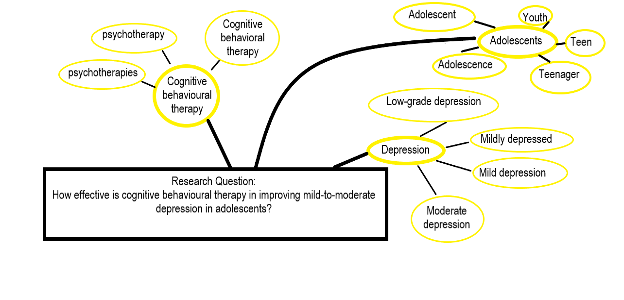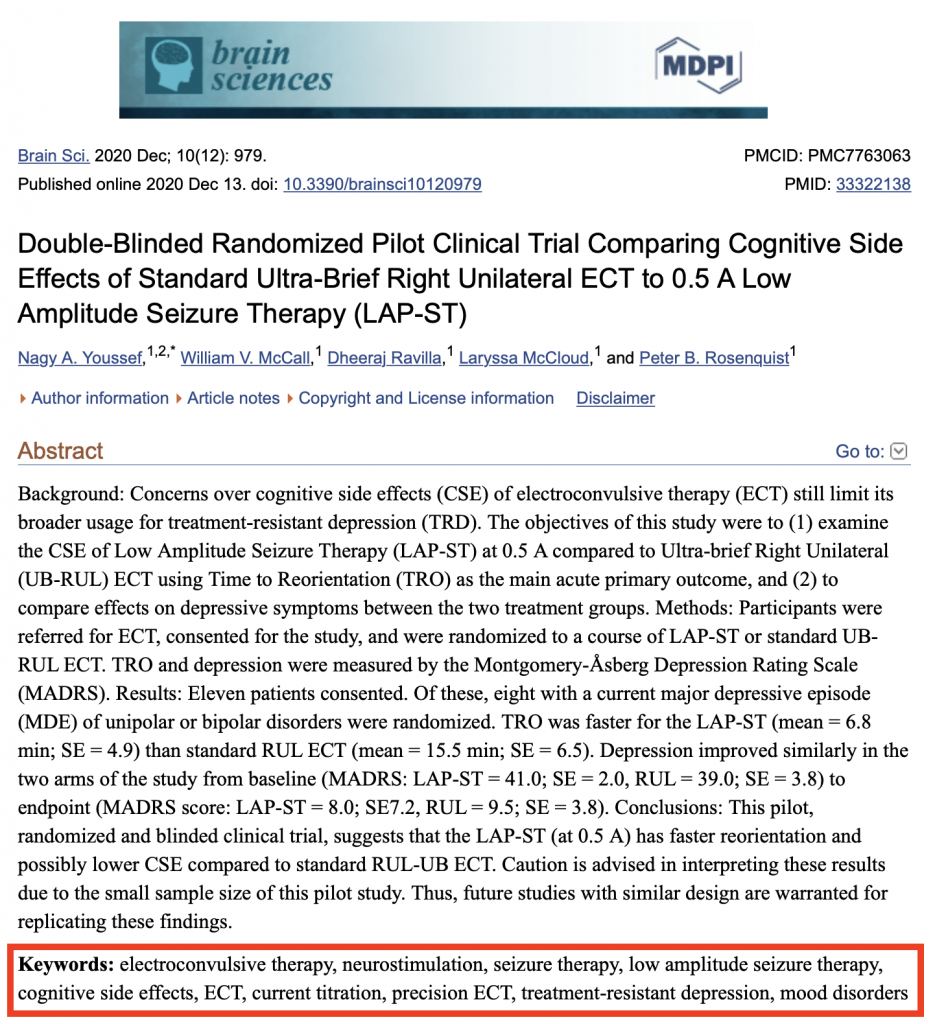Module 2: Formulating a Research Question and Searching for Sources
Related Keywords
Your search strategy can contain your main keywords, similar or related keywords and controlled terms (also called subject headings).
Searching by a keyword will retrieve resources where the author(s) used that specific term. For this specific reason, you should also brainstorm similar or related keywords to incorporate into your search.
Methods for Identifying More Keywords
You can identify more keywords in multiple ways. Below are two methods.
Method 1: Use a Concept Model or Map
To use this method:
- Write your research topic or question, along with any ideas and concepts associated with it on a blank sheet of paper.
- Use themes to group your ideas, and connect related concepts using lines.
- Remember to include the following:
- Synonyms
- Acronyms
- Brand names and generic names
- Variation in spelling (e.g. “paediatric” or “pediatric”)
Please see Figure 2.1 below for an example where your research question is “How effective is cognitive behavioral therapy in improving mild-to-moderate depression in adolescents?”

Method 2: Use Your Main Keywords in a Database
To use this method:
- Locate an article on your topic.
- Scan the title, abstract, and author keywords to identify more keywords (see Figure 2.2 below) to use in your search.

Key Takeaways
Some databases like Ovid MEDLINE, PubMed and EBSCO CINAHL use controlled vocabularies like MeSH as well as keywords. The next section will explain what controlled vocabularies are and how to use them. If you know you are going to use a database with controlled vocabularies, please check out the next section.
Learning Activity
Brainstorm more concepts

